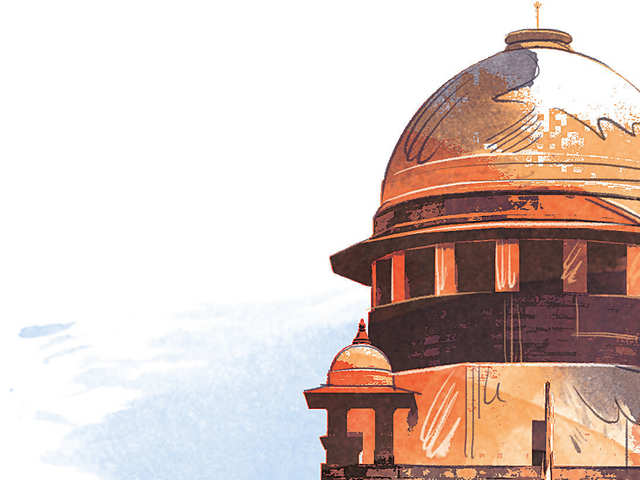Plea in SC seeks stay on implementation of Electoral Bond Scheme
Plea filed by Association for Democratic Reforms (ADR) said that certain amendments made in Finance Act, 2017 and earlier Finance Act, 2016, both passed as money bills, have opened doors to unlimited political donations, even from foreign companie...
by PTI
NEW DELHI: A plea has been filed in the Supreme Court seeking stay on the implementation of Electoral Bond Scheme, 2018, saying it has opened the floodgates of unlimited corporate donations to political parties and anonymous financing by Indian as well as foreign companies that can have serious repercussions on democracy in the country. It said that certain amendments made in Finance Act, 2017 and earlier Finance Act, 2016, both passed as money bills, have opened doors to unlimited political donations, even from foreign companies and thereby legitimising electoral corruption at a huge scale, while at the same time ensuring complete non-transparency in political funding.
"The Finance Act of 2017 had introduced the use of electoral bonds which is exempt from disclosure under the Representation of Peoples Act, 1951, opening doors to unchecked, unknown funding to political parties."
"The said amendments have also removed the existing cap of 7.5 per cent of net profit in the last three years on campaign donations by companies and have legalised anonymous donations," said the plea, filed by Association for Democratic Reforms (ADR).
It said the use of electoral bonds for political donations is a cause for concern because these bonds are in the nature of bearer bonds and the identity of the donor is kept anonymous.
The plea further said: "Political Parties are not required to disclose the name of the person/entity donating to a party through electoral bonds. Since the bonds are bearer instruments and have to be physically given to the political parties for them to encash, parties will know who is donating to them.
"It is only the general citizens who will not know who is donating to which party. Thus, electoral bonds increase the anonymity of political donations."
The ADR said that it has already filed a PIL on the issue of corruption and subversion of democracy through illicit and foreign funding of political parties and lack of transparency in the accounts of all political parties.
"The petitioners sought directions from this Court to strike down certain amendments made through Finance Act, 2017 and earlier Finance Act, 2016, both passed as money bills, and which have opened doors to unlimited political donations, even from foreign companies and thereby legitimizing electoral corruption at a huge scale, while at the same time ensuring complete non-transparency in political funding," it said.
The plea, filed through advocate Prashant Bhushan, said it is seeking grant of stay on the implementation of the Electoral Bond Scheme, 2018, notified by the Central Government on January 2, 2018.
It said that through the amendments, the requirement of the donor companies to disclose details in their Profit and Loss account about the name of the political party to which a donation has been made is also removed.
"Only the total amount of donations to political parties has to be disclosed without naming the political party," it said.
The plea said that with the removal of the 7.5 per cent cap on the net profits of the last three years of a company, now corporate funding has increased manifold as there is no limit on the amount a company can donate.
It said that even loss-making companies now qualify to make donations of any amount to political parties out of their capital or reserves.
"Further, it opens up the possibility of companies being brought into existence by unscrupulous elements primarily for routing funds to political parties through anonymous and opaque instruments like electoral bonds. This has increased the opacity of funding of political parties, and the danger of quid pro quo and if any benefits are passed on to such companies or their group companies by the elected government," it said.
It added that this has a major negative implication on transparency in political funding and are in violation of citizens' right to information, a fundamental right.